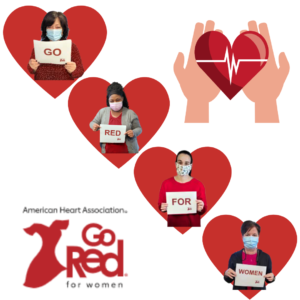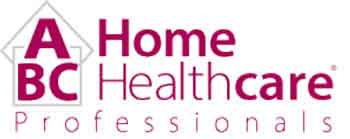How to Live a Heart-Healthy Lifestyle
February is American Heart Month. During this time, ABC is not only committed to life at home but we are committed to educating the public on heart disease which happens to be the most common killer of all Americans-  especially women! Statistics from the American Heart Association suggest that every year 1 in 3 women are diagnosed with heart disease. This is why February 5th has been named as National Wear Red Day (also known as the “Go Red for Women” initiative). The “Go Red for Women” initiative was established to spread awareness of the disease and highlight ways to prevent it.
especially women! Statistics from the American Heart Association suggest that every year 1 in 3 women are diagnosed with heart disease. This is why February 5th has been named as National Wear Red Day (also known as the “Go Red for Women” initiative). The “Go Red for Women” initiative was established to spread awareness of the disease and highlight ways to prevent it.
While the term “heart disease” refers to a variety of heart conditions, the most notable is coronary artery disease (CAD) which affects blood flow to the heart. This decreased blood flow can cause a heart attack. By living a healthy lifestyle, you can help keep your blood pressure, cholesterol, and blood sugar at normal levels which ultimately helps lower your risk for heart disease and/or a heart attack.
One of the peculiar things about heart disease is that it is not always easy to pinpoint and diagnose. Heart disease can go undetected for an extended period before manifesting itself as a full-fledged heart attack. Therefore, it is critical to understand the symptoms of a heart attack and heart failure so you can recognize these symptoms in yourself and others.
Know the symptoms of a heart attack and heart failure
Often times, if someone is having a heart attack, they will experience some chest pain or discomfort, upper back or neck pain, indigestion, heart burn, nausea or vomiting. They may experience increased fatigue, upper body discomfort, flutters in the chest, dizziness and/or shortness of breath. Similarly, if someone has heart failure, they are experiencing shortness of breath and increased fatigue but they also may have increased swelling in their feet, abdomen, ankles, legs or veins in their neck.
Especially this year with the coronavirus pandemic, recognizing heart attack/heart failure symptoms can be a challenge as some of the symptoms bear a striking resemblance to those of COVID-19. Regardless of whether you think your symptoms may be COVID related or heart related, it is important that you seek medical attention immediately!
So, what causes heart disease anyway?
High blood pressure and cholesterol, an unhealthy diet, obesity, physical inactivity, excessive nicotine usage and alcohol consumption can increase an individual’s risk for heart disease. For these reasons and many more, it is vital to commit to a healthy lifestyle.
Four tips for living a heart healthy lifestyle are as follows:
- Incorporate healthy foods and drinks into your normal diet
Avoid food and drinks with a high salt and sugar content, stay away from saturated and trans fats and include more high-fiber foods in your daily routine. - Watch your weight
As people who are overweight and/or obese are more likely to have heart disease, it is important to regularly monitor your weight. Consult a nutritionist if you are struggling with finding a manageable and sustainable meal choices. - Work out often
Physical activity can help you maintain a healthy weight and it can help lower blood pressure and cholesterol as well blood sugar levels. - Don’t smoke
Smoking, including e-cigarettes, greatly increases one’s chances for heart disease. If you are a smoker, it is best to consult your physician to develop a plan to kick this dangerous habit.
Fighting the fight against heart disease
With increased restrictions in hospitals and physician offices as part of their COVID-19 protocol, many routine appointments have gone virtual. Providers are relying more on telehealth technology to see and connect with their clients. Most people have been able to adapt to this new standard of care. However there are many individuals who have not adjusted so easily- such as the elderly, children and anyone else who either do not have access to the technology required or struggle with a language barrier. As a result, some routine appointments have been rescheduled and these people are not getting the care and attention needed to ensure they are truly healthy and/or that there have not been any notable changes or declines in their overall health.
The Nursing Team at ABC encourages you to adhere to standing, routine appointments with your physician(s) and our nurses urge you to advise your friends and family members to do the same.
